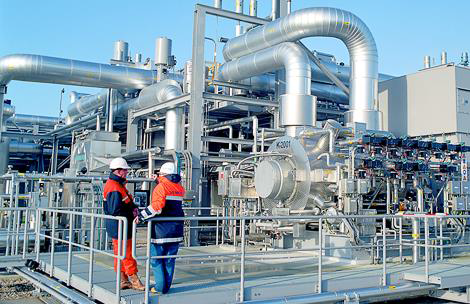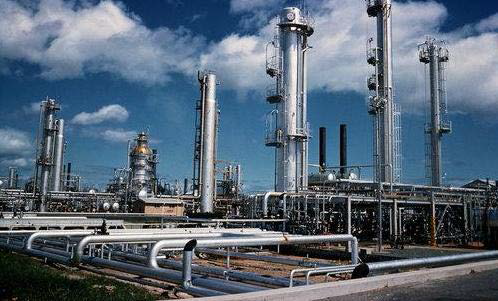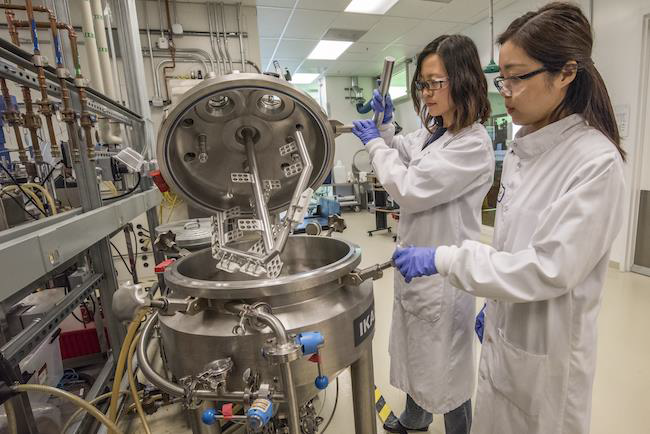COURSE OVERVIEW
PE0785 : Refinery Operational Economics, Planning & Profitability

OVERVIEW
| COURSE TITLE | : | PE0785 : Refinery Operational Economics, Planning & Profitability |
| COURSE DATE | : | Nov 03 - Nov 07 2024 |
| DURATION | : | 5 Days |
| INSTRUCTOR | : | Mr. Mervyn Frampton |
| VENUE | : | Dubai, UAE |
| COURSE FEE | : | $ 5500 |
| Request For Course | ||
OTHER SCHEDULED DATES
| Date | : | Jun 23 - Jun 27 (5 Days) | Location | : | Doha, Qatar | Classroom Fee (US$) | : | $ 6000 | Course Info |
| Date | : | Sep 30 - Oct 04 (5 Days) | Location | : | London, United Kingdom | Classroom Fee (US$) | : | $ 8800 | Course Info |
| Date | : | Oct 27 - Oct 31 (5 Days) | Location | : | Dubai, UAE | Classroom Fee (US$) | : | $ 5500 | Course Info |
| Date | : | Dec 22 - Dec 26 (5 Days) | Location | : | Istanbul, Turkey | Classroom Fee (US$) | : | $ 6000 | Course Info |
Course Description
The petroleum refining industry processes crude oil and produces a variety of products that are used in the transportation, residential, commercial, and industrial sectors of the economy.
In 2006, over two thirds of refinery output went to transportation uses, nearly a quarter went to industrial uses, and the remainder was used in residences, commercial activities, and electricity generation. The transportation sector remains the most heavily dependent on petroleum, drawing over 95% of its fuel needs from refineries.
Because the refining industry plays such a key role in providing energy for the economy, its structure and economic condition are matters of national interest. In recent years the industry has undergone significant change.
The traditional industry model, based on ownership by vertically integrated oil companies with profitability viewed within the context of a linked supply chain, has been altered by companies and joint ventures whose primary business is refining. Increasingly, the business model for these firms, as well as the integrated oil companies, is the standalone profit center.
Refiners now must earn market rates of return for investors, as well as returns sufficient to make investments in expansion, technological improvements, possible business restructuring, and to meet environmental regulations, both with respect to refined product specifications and refinery site operations and expansion.
The aim of this course is to provide participants with a complete and up-to-date overview of the refinery operational economics, planning and profitability. Upon the successful completion of this course, participant will gain a satisfactory understanding of the concepts of operational profitability, refinery configuration, planning objectives and tools, key crude and product qualities, crude and product pricing, practical refinery modelling, market dynamics, managing risk, performance measures and benchmarking. Actual case studies from around the world will be demonstrated to highlight the topics discussed.
Course Objectives
Upon the successful completion of
In 2006, over two thirds of refinery output went to transportation uses, nearly a quarter went to industrial uses, and the remainder was used in residences, commercial activities, and electricity generation. The transportation sector remains the most heavily dependent on petroleum, drawing over 95% of its fuel needs from refineries.
Because the refining industry plays such a key role in providing energy for the economy, its structure and economic condition are matters of national interest. In recent years the industry has undergone significant change.
The traditional industry model, based on ownership by vertically integrated oil companies with profitability viewed within the context of a linked supply chain, has been altered by companies and joint ventures whose primary business is refining. Increasingly, the business model for these firms, as well as the integrated oil companies, is the standalone profit center.
Refiners now must earn market rates of return for investors, as well as returns sufficient to make investments in expansion, technological improvements, possible business restructuring, and to meet environmental regulations, both with respect to refined product specifications and refinery site operations and expansion.
The aim of this course is to provide participants with a complete and up-to-date overview of the refinery operational economics, planning and profitability. Upon the successful completion of this course, participant will gain a satisfactory understanding of the concepts of operational profitability, refinery configuration, planning objectives and tools, key crude and product qualities, crude and product pricing, practical refinery modelling, market dynamics, managing risk, performance measures and benchmarking. Actual case studies from around the world will be demonstrated to highlight the topics discussed.
Course Objectives
Upon the successful completion of
TRAINING METHODOLOGY
This interactive training course includes the following training methodologies as a percentage of the total tuition hours
LecturesWorkshops & Work Presentations
Case Studies & Practical Exercises
Videos, Software & Simulators
In an unlikely event, the course instructor may modify the above training methodology before or during the course for technical reasons.
VIRTUAL TRAINING (IF APPLICABLE)
If this course is delivered online as a Virtual Training, the following limitations will be applicable
| Certificates | : | Only soft copy certificates will be issued to participants through Haward’s Portal. This includes Wallet Card Certificates if applicable |
| Training Materials | : | Only soft copy Training Materials (PDF format) will be issued to participant through the Virtual Training Platform |
| Training Methodology | : | 80% of the program will be theory and 20% will be practical sessions, exercises, case studies, simulators or videos |
| Training Program | : | The training will be for 4 hours per day starting at 09:30 and ending at 13:30 |
| H-STK Smart Training Kit | : | Not Applicable |
| Hands-on Practical Workshops | : | Not Applicable |
| Site Visit | : | Not Applicable |
| Simulators | : | Only software simulators will be used in the virtual courses. Hardware simulators are not applicable and will not be used in Virtual Training |
RELATED COURSES

PE0114 : Process Troubleshooting and Problem Solving
- Date : Dec 08 -Dec 10 / 3 Days
- Location : Dubai, UAE
- Course Details Register

PE0910 : Refinery Production Operations & Petroleum Products
- Date : Dec 16 -Dec 19 / 3 Days
- Location : Abu Dhabi, UAE
- Course Details Register

PE0055 : Process Reactors: Operation, Troubleshooting, Start-Up & Shutdown
- Date : Dec 09 -Dec 12 / 3 Days
- Location : Dubai, UAE
- Course Details Register

PE0640 : Troubleshooting Process Operations
- Date : Nov 17 -Nov 21 / 3 Days
- Location : Istanbul, Turkey
- Course Details Register
